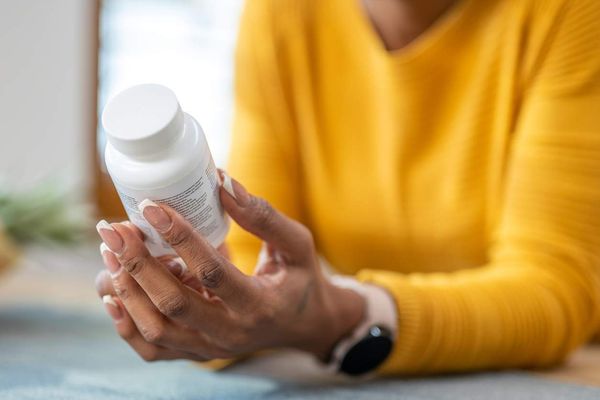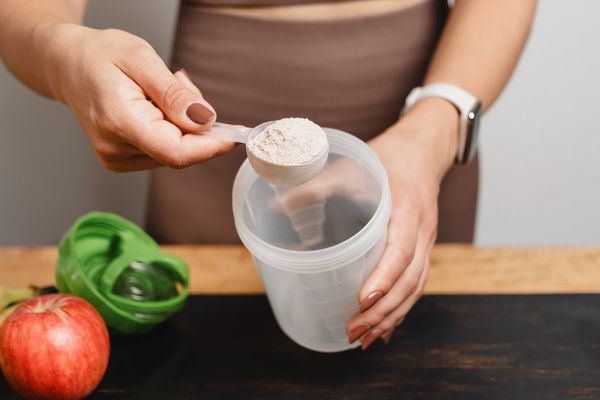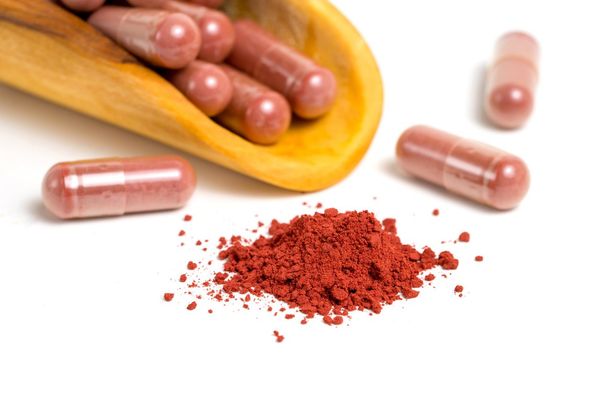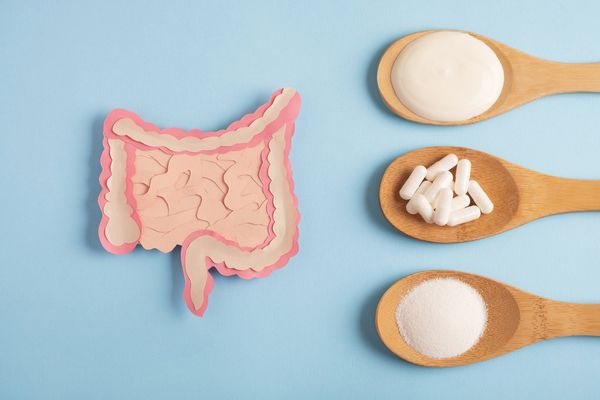Which multivitamin mixture do you think best describes your needs—performance, age-defying, active, antistress or silver? If you don't know, you're not alone. These names—and many more—are used to market vitamin and mineral supplements to consumers but have no medical or scientific definitions.
Names alone won't tell you what's in a supplement. So it's easy to feel confused when you stroll down the vitamin aisle in a drugstore, chain discounter, or shops that sell hundreds of supplements for all sorts of health concerns.
Reading the tiny type on the bottle labels often won't answer many questions: Which vitamins and minerals—if any—do you need to take? Are "all-naturals" or those containing herbs better than standard formulations? Is a big dose more beneficial than a small one?
Taken on trust
About 50 percent of U.S. women take at least one vitamin or mineral supplement, yet many of us have not been advised to do so by a healthcare professional. Instead, we may hear about a certain supplement from a friend, coworker, news article, media program, advertisement or Internet discussion. This helps spur an industry that sells more than $1.5 billion in products each year in the United States alone, making vitamin and mineral supplements among the most commonly used drugs, even though their benefits and risks are uncertain.
The reasoning behind such trust goes something like this: Since vitamins and minerals are things our bodies need, it must be safe to take them in supplement form, right? Likewise, since herbs are from nature, herbal supplements must also be safe and good for us. After all, if supplements are on drugstore shelves, that means the U.S. Food and Drug Administration (FDA) has approved their use and safety for the purpose claimed, doesn't it?
The answers to these questions are not what many people assume them to be. Knowing the real deal about vitamin and mineral supplements will help you cut through the hype and make healthy, informed choices.
How's your diet?
The foods we eat—or, at least, the ones we should eat more of (think fruits and vegetables)—contain the vitamins and minerals our bodies need for proper growth and function. "The best way to get these nutrients is from food," says Jessie Satia, PhD, MPH, a vitamin researcher and assistant professor, Department of Nutrition and Epidemiology, University of North Carolina, Chapel Hill.
While supplements can deliver doses of manufactured micronutrients, real foods "contain other substances that might be beneficial to you that might not be in that pill," Dr. Satia says. For example, fruits and vegetables provide antioxidants, phytochemicals and other substances that protect against cancer and cardiovascular disease, as well as fiber and other health-promoting components. Synthetic antioxidants, found in supplements, might disturb the balance of important natural defenses for some people.
Dr. Satia also points out that various nutrients in the same food may have a combined effect that would not be attained in supplement form.
To get the benefits of naturally occurring micronutrients, you need to eat a healthful and varied diet. For many women, that would mean a recommended daily intake of two and a half cups of veggies, one and a half cups of fruit, three eight-ounce glasses of milk (or equivalent dairy products), five ounces of meat or beans, six ounces of grains and five teaspoons of oil. That can be a challenging formula to achieve every day. "Realistically," says Dr. Satia, "in the U.S., most people are not eating the recommended daily allowance for most nutrients—except fat, which many of us eat too much of."
As a result, she and other researchers, as well as the American Dietetic Association, believe it may make sense to take a daily multivitamin with minerals. Dosages should not exceed 100 percent of the Dietary Reference Intakes established by the Institute of Medicine.
Multivitamins may provide nutritional "insurance" for many people whose schedules disrupt even the best attempts at consistent healthful eating. Dr. Satia herself takes a multivitamin because she travels extensively and can't always have meals at home.
Women who are trying to get pregnant should take a multivitamin containing folic acid, according to the American Academy of Family Physicians. This helps prevent the development of very serious brain or spinal cord defects in the baby, changes which can occur in the early weeks of pregnancy. One recent study also shows that taking a multivitamin regularly may decrease infertility caused by ovulation problems.
If you're pregnant or breastfeeding, your health care provider will probably recommend that you take prenatal multivitamins with minerals to get the extra nutrients you need.
Older people, vegans, those who are alcohol-dependent and individuals whose bodies have difficulty absorbing certain nutrients may have an inadequate supply of certain vitamins and also need supplementation.
Taking megadoses
Beyond multivitamins, what about the one-shot wonders? The store shelves are crowded with single nutrient supplements, such as vitamin E, selenium or beta-carotene in high doses. Does it make sense to take these?
Research continues to explore whether taking large amounts of individual nutrients can be beneficial. So far, with a few exceptions (calcium to boost bone health if calcium intake is low and omega-3 fatty acids which may protect against the inflammation associated with cardiovascular disease and some cancers, Dr. Satia says), no strong scientific evidence really exists.
Individual nutrients may be helpful at normal daily intake, as in multivitamins, but studies have shown that megadoses of single nutrients do not reduce risk for cancer and cardiovascular disease, as once hoped. These include vitamins C and E, selenium, beta-carotene and other antioxidants and B vitamins.
What's more, "Some nutrients can be toxic if you take really high doses of them," says Dr. Satia. "Some people think, 'Oh, if 100 milligrams is good for me, then 10,000 milligrams will be really good!' You have to be careful not to take these nutrients in excess because they have the potential to have adverse effects or even be harmful."
If you've taken too much of water-soluble vitamins, such as vitamin C, the extra leaves your body when you urinate. But fat-soluble vitamins, such as vitamins A and E, are stored in body fat for future use. Too much can cause problems. So can large doses of beta-carotene or minerals such as iron, zinc, copper and selenium. A 2007 review of antioxidant use showed that treatment with vitamins A, E and beta-carotene may even increase mortality.
Certain vitamin, mineral and herbal supplements can interact negatively with other medications you may be taking (such as heart medicines, blood thinners, antidepressants or birth control pills) or worsen a chronic medical condition. And what about supplements labeled as "natural"? Here's what the FDA says: "The term 'natural' doesn't always mean safe. Do not assume that the term ensures wholesomeness or safety."
Who's watching out for you?
Speaking of the FDA, you might think that agency evaluates and approves supplements for safety and effectiveness—as is done with drugs—before supplements are sold to consumers. It doesn't. By law, the FDA gets involved with the safety of dietary supplements only after a problem occurs in people using the products.
That's why it's especially important to use caution when evaluating manufacturers' claims for the benefits of their supplements. Talk with your health care provider first, especially if you're taking other medication or are at risk of, or have, a chronic condition such as diabetes.
According to the FDA, "Dietary supplements are not intended to treat, diagnose, mitigate, prevent, or cure diseases." Keep that in mind when shopping those crowded vitamin aisles!
Here are a few other tips for using vitamins and minerals safely:
- Check the expiration date on the bottle.
- Store in a dry place.
- Don't take supplements as substitutes for eating food.
- Let your health care providers know about all supplements you are taking, including vitamins and herbal products. This is especially important if you are on medication or will be having surgery. Do not take supplements instead of prescribed medication.







